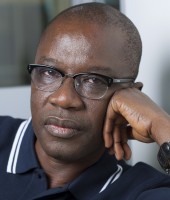El Hadji Ibrahima Diop
El Hadji Ibrahima Diop is University Professor and Dean of the Faculty of Sciences and Technologies of Education and Learning (FASTEF, formerly ENS) in Dakar, and a member of the German Society for 18th Century Research. In 1985, he defended his doctoral dissertation at the University of Leipzig (dissertation topic: Napoleon I in German Lyricism of the late 18th and early 19th Centuries), which was awarded magna cum laude honours. He also defended his Habilitation dissertation in 1998 at the University of Essen: German and Germanistic Studies in Francophone Africa, from the Colonial Period to Independence.
As author of more than thirty publications in various scientific journals, El Hadji Ibrahima Diop was a guest professor at the University of Freiburg im Brisgau in 2000, 2004 and 2006. His research focuses on philosophy, anthropology, literature and history in 18th century Europe and in Africa.
The Age of the Enlightenment gave a form of rationality and pragmatism to our modern sciences. The imprint of these sciences and their civilizing utility were shaped according to the history of countries and their cultures. On an international level, the major project of the Enlightenment was based on the idea of the governability of the world, which drew the current outline of our global view. In this regard, the anthropological knowledge of the Enlightenment consecrated a standardized universalization of systems representing the ties between Europe and Africa. Therefore, based on the founding texts of Enlightenment anthropology, we wish to study and compare the answers given in France and Germany to the following questions, which did not have the same meaning then as we give them in current research:
1. What did Enlightenment philosophers and anthropologists know about Africa? How did they use this knowledge (in a teleological or gnoseological way)?
2. How was this knowledge transmitted across the European region, specifically in Germany and France?
3. In the process of governability of the world, what place did the Enlightenment reserve for Black Africa?
4. How did the various types of explanations for human civilizations give way to a racial explanation for the differences between civilisations?
5. How were these arguments able to make use of rationality accepted by the most enlightened minds in Europe, and what types of rationality were these?
6. How do the Enlightenment’s discursive practices influence the current shaping of Europe-Africa relations?

